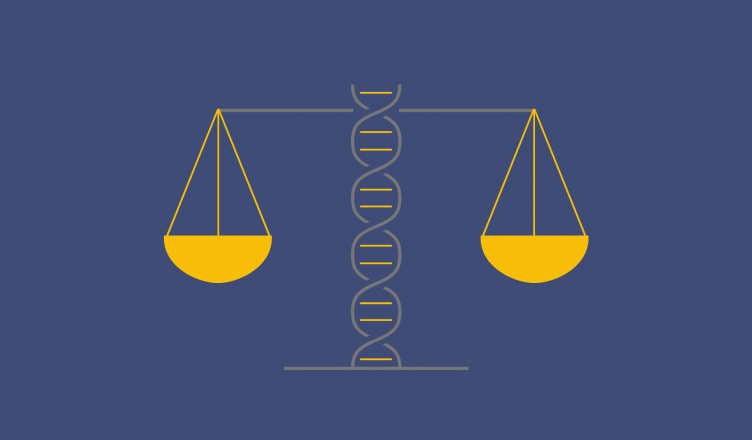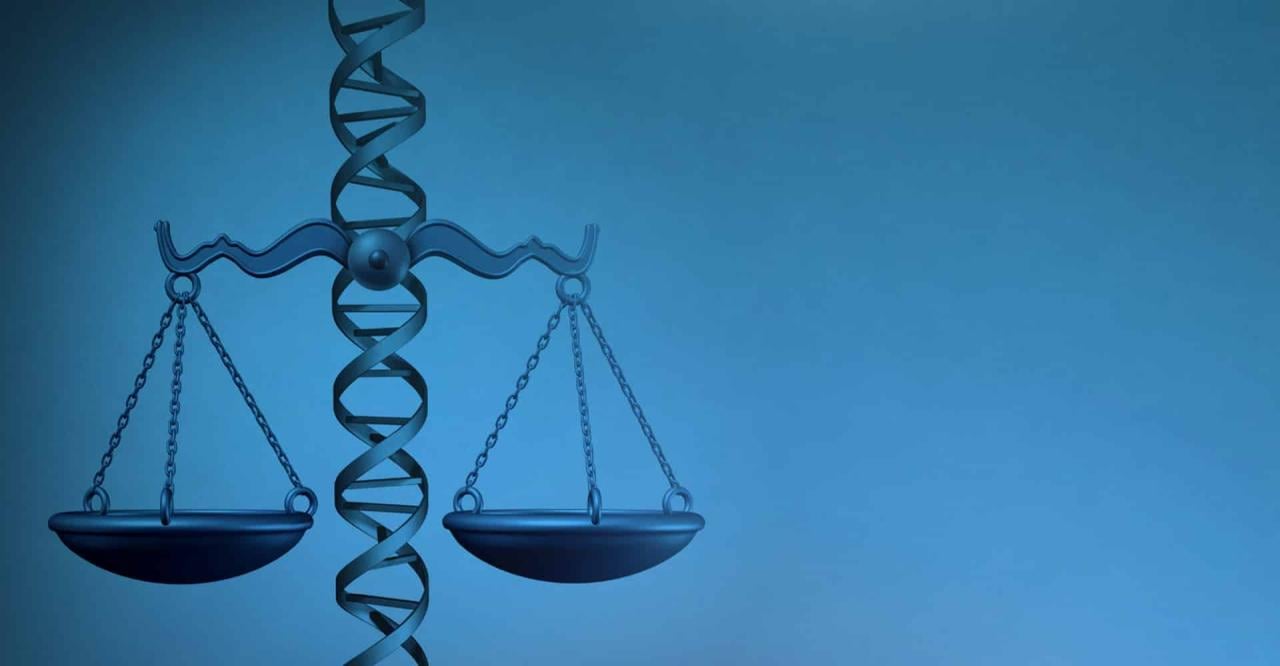The rapid pace of scientific and medical innovation has opened up a new frontier of ethical and legal dilemmas. From gene editing and artificial intelligence in medicine to the complexities of end-of-life care and organ transplantation, the field of Bioethics and Legal Issues is a critical discipline that seeks to establish a moral and legal framework for these advancements. This article will provide a comprehensive look into the key areas where biology, medicine, and law intersect. We will explore the fundamental ethical principles that guide these discussions, delve into the specific legal challenges posed by new technologies, and offer a strategic roadmap for navigating the complex moral and regulatory landscape of modern medicine. The future of healthcare is being shaped not just by scientific breakthroughs, but by the legal and ethical decisions we make today.
![]()
The Foundational Principles of Bioethics

Bioethics is a field of study that seeks to address the ethical questions that arise in the life sciences and medicine. It is built on a foundation of four key principles that serve as a moral compass for doctors, scientists, and policymakers.
A. Autonomy: This principle asserts that individuals have the right to make their own informed decisions about their healthcare. It is the foundation of informed consent, which requires a doctor to provide a patient with all the necessary information about a procedure, including the risks and benefits, so the patient can make a voluntary choice. The legal system protects this right, and a doctor who performs a procedure without a patient’s consent can be sued for battery.
B. Beneficence: This principle holds that a healthcare provider has a duty to act in the best interest of the patient. It is the guiding force behind the Hippocratic oath, “do no harm,” and it compels doctors to use their knowledge and skills to improve the health and well-being of their patients. The legal system enforces this principle through medical malpractice law, which holds doctors accountable for negligence that harms a patient.
C. Non-maleficence: This principle is closely related to beneficence and holds that a healthcare provider has a duty to do no harm. It is a fundamental part of a doctor’s ethical code and is a key consideration in medical decisions, such as a doctor’s refusal to perform a procedure that they believe is not in the patient’s best interest. The legal system protects this principle by holding doctors accountable for negligence that causes a patient harm.
D. Justice: This principle asserts that all individuals have a right to fair and equitable access to healthcare. It raises critical questions about the distribution of medical resources, the fairness of healthcare policies, and the ethical implications of a two-tiered healthcare system. The legal system addresses this principle through a variety of laws and regulations, such as those that govern Medicare and Medicaid, which are designed to ensure that all citizens have access to a basic level of healthcare.
The Legal Frontiers of Medical Technology
The rapid pace of technological innovation is creating a new and complex set of legal challenges that are not easily addressed by existing laws. These new frontiers are where the legal system is currently focused.
A. Genetic Engineering and CRISPR Technology: Genetic engineering, particularly with the advent of CRISPR technology, which allows for precise editing of DNA, has opened up a new world of possibilities and legal dilemmas.
- The Legal Status of an Embryo: The legal status of an embryo is a major point of legal contention. Is an embryo a human being with legal rights? The answer to this question has profound implications for the legality of genetic editing and the use of embryos in research.
- “Designer Babies” and Discrimination: The possibility of creating “designer babies” by editing their DNA to enhance certain traits raises a host of legal and ethical questions. What legal protections would be in place to prevent discrimination against a person whose genes were not “enhanced”? What legal rights would a child have if they were harmed by a genetic modification?
- The “Patent” Problem: Can a person or a company patent a new gene or a new form of life that they created in a lab? The legal system is grappling with this question, with a number of lawsuits challenging the legality of gene patents.
B. Artificial Intelligence in Medicine: AI is being used in medicine to diagnose diseases, recommend treatments, and even perform surgeries. This raises a new set of legal and ethical questions about liability and responsibility.
- Medical Malpractice: If an AI-powered diagnostic tool provides a flawed diagnosis that leads to patient harm, who is liable? Is it the doctor who used the tool, the programmer who created the algorithm, or the company that manufactured the device? The legal system would likely hold the doctor responsible, but as AI systems become more autonomous, the line of responsibility will blur.
- Data Privacy: AI in medicine relies on vast amounts of patient data. The legal system is grappling with how to protect this sensitive data and ensure that it is not used in a way that violates a patient’s privacy.
C. Organ Transplantation and Allocation: The field of organ transplantation is governed by a complex set of legal and ethical rules.
- Organ Allocation and Justice: The legal system has created a framework for allocating organs, but it is a constant source of ethical debate. Is the current system, which prioritizes a person’s medical need, the most just? What role should a person’s lifestyle or age play in the allocation of an organ?
- The “Black Market” for Organs: The demand for organs far outstrips the supply, which has led to a black market for organs. The legal system is working to crack down on this illegal trade and to ensure that all organ donations are voluntary and ethical.
End-of-Life Care and the Right to Die

The legal and ethical questions surrounding end-of-life care are a core part of bioethics. The legal system is grappling with a person’s right to control their own death and the role of doctors in this process.
A. Physician-Assisted Suicide and Euthanasia: Physician-assisted suicide, where a doctor provides a patient with the means to end their own life, is a legal and ethical battleground.
- The Legal Status: In the U.S., a number of states have legalized physician-assisted suicide, but it remains illegal in many others. The legal debate is over a person’s right to autonomy and the state’s interest in protecting life.
- The “Slippery Slope” Argument: Opponents of physician-assisted suicide argue that it could lead to a “slippery slope,” where a person who is not terminally ill is pressured to end their life. The legal system has created a number of safeguards to prevent this, such as requiring a person to be terminally ill and mentally competent.
B. Living Wills and Advance Directives: The legal system has created a framework for a person to control their own end-of-life care through living wills and advance directives.
- Legal Force: A living will is a legal document that allows a person to state their wishes about medical treatment in the event that they are no longer able to communicate. The legal system recognizes the validity of these documents and compels doctors to follow them.
- The Surrogate Decision Maker: The legal system has also created a framework for a person to appoint a “surrogate decision maker” or a “power of attorney for healthcare” to make medical decisions on their behalf if they are no longer able to.
C. The Right to Refuse Treatment: The legal system recognizes a person’s right to refuse medical treatment, even if it could save their life.
- Informed Consent: This right is based on the principle of autonomy and the legal concept of informed consent. A doctor cannot force a patient to undergo a medical procedure against their will, even if they believe it is in the patient’s best interest. The legal battle is over the boundaries of this right, particularly when a person’s decision could harm others, such as in the case of a pregnant woman refusing treatment.
The Role of Law and Policy in Shaping Bioethics
The legal and political systems are a critical part of the bioethics debate. Law and policy are being used to set the boundaries for medical innovation, protect individual rights, and ensure a just and equitable healthcare system.
A. Creating New Regulations: The legal system is creating new regulations to address the challenges posed by new medical technologies.
- FDA and Medical Devices: The Food and Drug Administration (FDA) in the U.S. has a key role in regulating medical devices, including AI-powered diagnostic tools. The FDA is creating new regulations to ensure that these devices are safe and effective.
- Legislation on Genetic Editing: Governments are passing new legislation to regulate genetic editing and to set the ethical and legal boundaries for this technology.
B. The Role of the Courts: The courts are also playing a critical role in shaping bioethics.
- Landmark Rulings: Landmark court rulings, such as those on a person’s right to refuse treatment, have set the legal precedent for how doctors and hospitals must treat patients.
- Protecting Individual Rights: The courts are being used to protect a person’s rights, such as their right to privacy and their right to autonomy, in a medical context.
C. The Role of Ethics Committees: Many hospitals and research institutions have ethics committees that are tasked with addressing the ethical questions that arise in their work.
- Guidance and Oversight: These committees provide guidance to doctors and researchers on ethical dilemmas, and they have the authority to halt a research project that they believe is unethical.
- The Legal Status: The legal status of these committees is still evolving, but they are a critical part of the bioethics landscape.
Conclusion
The intersection of bioethics and legal issues is a critical frontier that is forcing a new social contract for medicine. It is a story of a new era of medical innovation, and a fundamental debate about the balance between scientific progress, individual rights, and a just and equitable society. The challenges are immense, from the legal ambiguity of genetic editing to the ethical questions of physician-assisted suicide. However, the opportunity is even greater: to create a new legal and ethical framework that is as innovative, flexible, and forward-looking as the technology it seeks to govern. The decisions we make today will not only shape the future of medicine but will also define our relationship with our own bodies, our health, and the very concept of life itself. The future of bioethics is here, and it is a fascinating and challenging new frontier.







